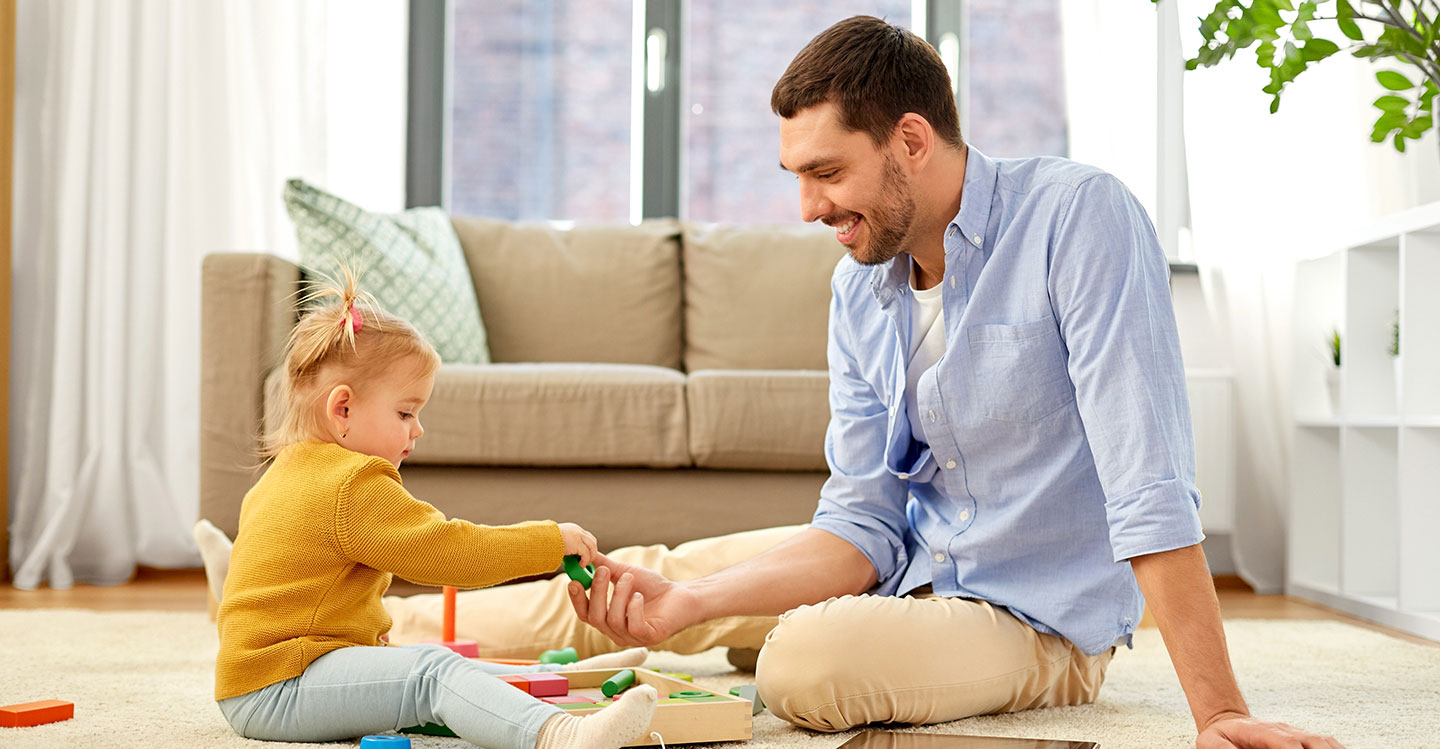When your baby reaches toddlerhood, their unique personality will quickly come to the fore and their ability to communicate will improve daily. This is an important time when you can engage with your child like never before and strengthen your unique bond.
Foundations of trust
Trust building begins during babyhood, when your child learns that they can depend on you to comfort and soothe them and to attend to their needs. As your child grows and develops, the foundations of trust are further developed and bonds further strengthened through the accumulating effect of your actions. Actions and choices such as keeping your promises, picking your toddler up when they fall, providing safe and predictable routines and seeing the good in them – even when their behaviour can be difficult and exasperating – each have a lasting effect.
Listening and encouragement
Toddlers are easily frustrated – they want to communicate with you, but don’t quite know how and can’t find the right words. They have strong feelings but can’t always express or control them. They are desperate to assert their independence, but don’t like being away from you either.
You might think your toddler is a walking contradiction and find the intensity and unpredictability of their emotions hard to manage at times, but you play an important role in helping them learn to regulate their emotions. By simply being there, responding with empathy – and a hug when needed – and trying to see things from your child’s point of view, you will let them know they have been heard, acknowledged and understood. This is when your toddler can start to manage challenges and regulate their emotional responses.
Encouragement is key. Children need your approval to know they are good people who can do good things. This doesn’t mean showering them with constant praise; rather it means that you acknowledge the choices they make and the actions they take and you positively reinforce the right ones. A simple comment like “You shared your toys with your baby sister really well this morning. I’m sure you made her very happy,” is all that’s needed.
One-on-one time
Everyone is busy, especially with the demands of caring for children and running a household on top of work, other relationships and social commitments – not to mention trying to find some time for ourselves. The single best thing you can do to build a strong relationship with your toddler, however, is to make sure you prioritise regular one-on-one time with them. It doesn’t have to be spent doing exciting things – sharing ordinary tasks around the house is fine, or maybe sitting on the floor playing blocks with them or going for a walk to the park. Whatever you do together, ensure you give your child your full attention and concentrate on being ‘in the moment’ with them. During playtime, let your child direct the play and get down on their level to join in. Your inner child will thank you!
Have fun together
Life with toddlers can be messy, noisy and chaotic, but if you let yourself relax and stop worrying about a bit of mess in the house, or perhaps ease off with some other commitments to give you more time and energy for the kids, it can be lots of fun too.
Toddlers are amazing. The amount the can learn from one day to the next – and the speed of their development – is incredible. Although, sometimes, it may seem like toddler tantrums will never end, this stage will soon pass. Enjoy the uniqueness of your child’s toddlerhood while you can and share lots of fun and laughter together – the bond you develop now will have a lasting impact on their life.



